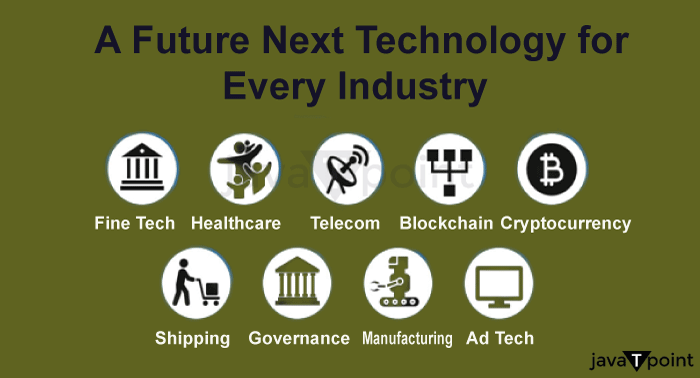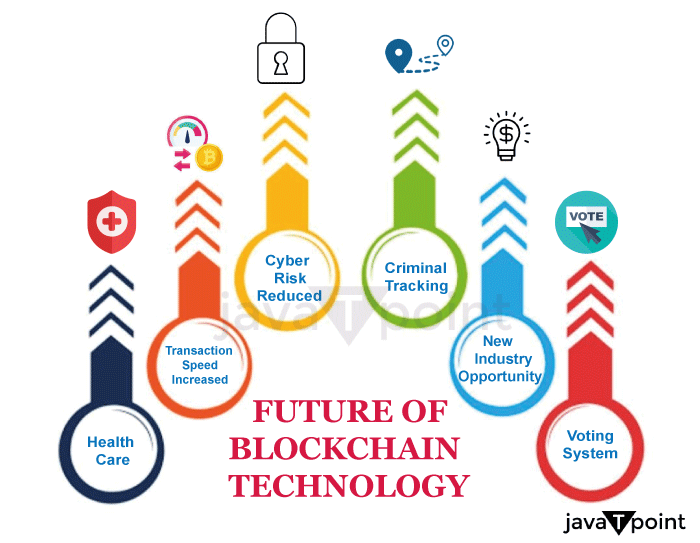10 Reasons Why Blockchain Technology Is the FutureBlockchain for business employs an open, unchangeable ledger that only members with authorization can view. Members of the network have control over what data each organization or member may view, as well as the actions each member may take. Because business partners don't have to trust one another, blockchain is frequently referred to as a "trustless" network rather than because they don't have to. This confidence is based on the increased security, increased transparency, and immediate traceability of blockchain technology. Beyond issues of trust, blockchain offers additional commercial advantages, such as cost savings via accelerated rapidity, effectiveness, and automation. Blockchain dramatically lowers overhead and transaction expenses by minimizing paperwork and errors and the requirement for intermediaries or third parties to validate transactions. Recently, blockchain technology has drawn a lot of attention. It is referred to as the cryptocurrency, financial transactions, and computer future. But what exactly is a blockchain? Why should you care, then? As a decentralized database structure, blockchain was developed to address the issue of trust in networks of peers. Bitcoin was the first program to be developed on top of it. Today, blockchain technology has a wide range of uses that are just now being discovered. 
IntroductionBlockchain innovation has the ability to drastically alter our way of life. Blockchain technology is currently making waves throughout industries, and over the next few years, it's likely to become increasingly common in financial services, medical facilities, governments, and other sectors. The way we view money, business, law, and society is changing as a result of blockchain technology. After the internet, mobile, social, and AI/IoT waves, it has an opportunity to become the fourth disruptive wave. Despite their name, distributed ledgers-hence the term-used by several nodes (personal computers or people) rather than chains of individual blocks are what makeup blockchains. How does blockchain technology work?The idea of blockchain technology is relatively new. It has been operating for the last eight years, and in that short time, it went from obscurity to prominence. It began as a way to use cryptocurrencies like Bitcoin for anonymous transactions. Currently, blockchain has been employed for a wide range of different purposes, including food traceability and supply chain management. The forthcoming wave of technological progress is blockchain technology. It is at the forefront of the industrial revolution and will fundamentally alter how we conduct business. Blockchain technology has the potential to significantly alter a variety of industries, including finance, healthcare, governance, security, and voting. Blockchain, put simply, is a cloud-based information storage system. The cryptocurrency's underlying network is called blockchain. The market is flooded with cryptocurrencies. The four most significant ones are XRP, Tether, Ethereum, and Bitcoin. Due to its benefits, this technology improves flexibility, security concerns, and even data transmission processing. Why the Blockchain is the Destiny of Digital Information is the topic of this article. To comprehend this, we need to have a thorough understanding of what Bitcoin is, how it operates, and how it is used. Many issues that existed before the advent of blockchain technology have excellent solutions now. Additionally, it produces new issues that are difficult to resolve using techniques and ideas already in use. For instance, blockchain dramatically reduces transaction costs by doing away with middlemen in peer-to-peer transactions, but it also raises privacy issues since users are fictitious rather than anonymous. Blockchain innovation has been a hot topic for the past two years. All of the big media outlets are covering it in their headlines. But how exactly does it operate? And why are there so large investments in it? How does blockchain technology work? Financial transactions can be carried out without the use of a middleman or centralized authority thanks to blockchain technology. Online transactions are made through a global network of computers that verify and confirm them all at once. As a result, a decentralized ledger that continuously records these transactions is created, resulting in data blocks that cannot be retroactively changed by anyone who is not a part of the blockchain. One of the most well-liked and intriguing technologies nowadays is blockchain technology. The number of cryptocurrency owners is growing quickly. Blockchain is being used by many companies to streamline commercial operations, and several governments are looking into using it to develop citizen service delivery systems that are more effective.On paper, all of this appears to be a fantastic idea, but in practice, it is difficult to comprehend. Let's make an effort to debunk the entire procedure and clarify what blockchain accomplishes in reality and why it's so crucial to our future. Blockchain innovation has the power to transform a variety of markets and alter the way we view trust, transactions, and data security. Ten factors make blockchain the technology of the future, so the 10 reasons are listed below :
What will happen to blockchain technology next?The development of blockchain technology is ongoing. It is still being improved upon and put to use in several novel ways, which will result in a more modernized internet that is totally secure from hackers. The future of technology is blockchain. It's what powers digital money like Bitcoin and Ethereum, and beyond that, it has the power to transform entire sectors of the economy. Although some businesses are already using this to their own advantage, blockchain is no longer just for them. Blockchain is the way to the future of money!One of the most significant and groundbreaking innovations since the internet is blockchain technology. Peer-to-peer networks are made possible by this because it makes it possible to disseminate information to all participants without it being copied, eliminating middlemen from a variety of businesses. 
Simply put, a blockchain is an internet of computers that acts as a secure, private database for transactions. The distributed ledger database is not kept in one place or under the authority of one single organization. Instead, it is present on hard drives and servers anywhere in the world. Because of this decentralization, hackers can't attack a single point of failure, which results The banking industry is embracing blockchain technology more and more. A revolutionary technology, the blockchain has the ability to change how money is transferred globally. Conclusion"The way sectors conduct business is already changing as a result of blockchain." The director of operations of Techstars Bitcoin in New York, Lisa Nestor, explains. It can also influence how governments are managed, but to do so, it will need to get through the current legal framework. Overall, blockchain technology has a wide range of possible uses and has the ability to profoundly alter how we connect with one another and the outside world. Therefore, it is probable that distributed ledger technology will have a significant impact on how the future is shaped. |
 For Videos Join Our Youtube Channel: Join Now
For Videos Join Our Youtube Channel: Join Now
Feedback
- Send your Feedback to [email protected]
Help Others, Please Share










